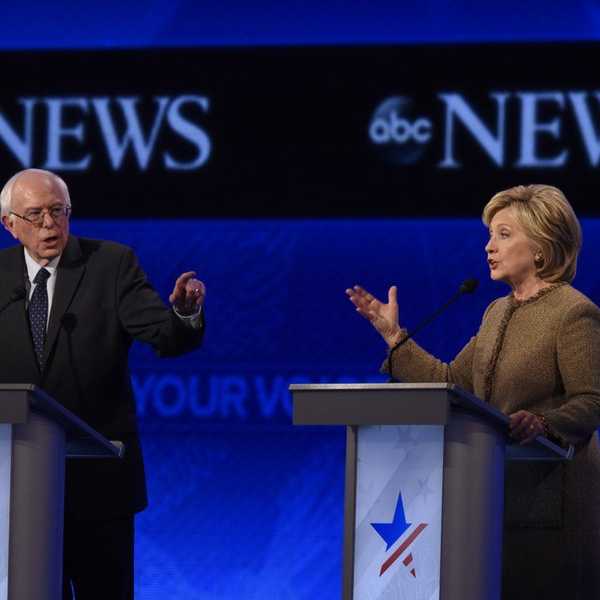It has been about 2 weeks since Donald Trump shocked the media, and the world with his upset win over Hillary Clinton. There have been a number of theories as to why that happened. The most widely circulated, on my Facebook page at least, is that everyone who voted for Trump is racist and misogynist. Less shared, and possibly more reasonable explanations abound, and those will most likely be covered in future articles. However, something else has been popping up. Calls to repeal the Electoral College have come from many news outlets, saying that the Electoral College stole the election from the people. If you are diving into this fight, especially with Thanksgiving around the corner, consider this a user friendly (as best I can) primer as to what it is, why it exists, and why it is beneficial to our country to keep it, but perhaps in a modified form.
History
The Electoral College in enshrined in the constitution, specifically in Article II, Section 1. In that Article, the Electoral College (hereby abbreviated as EC) has a vastly different function that what it actually does today. Originally, electors were voted on a district-by-district basis, rather than at the state level. Originally, each elector was encouraged to exercise their own judgement when casting their vote, while current laws essentially require electors to cast for their state’s winner. Finally, the candidates would not be paired. The highest vote-getter is the President; second highest is the Vice President. The only rule still in effect is that each state gets electors equal to the number of senators and representatives they have, though no senator or representative may be an elector.
By the 1800’s political parties jumped onto the scene and threw a wrench into the system. In 1796, America saw John Adams, a Federalist elected President. His ideological opponent, Thomas Jefferson, a Democratic-Republican, received the second amount of votes and became Vice-President. The election of 1800 saw Jefferson run for President, and nominate Aaron Burr as his VP. However, with no way for electors to distinguish between the two, they ended up in an electoral tie. A Federalist congress nearly elected Burr as a way to embarrass their political opponents before the transfer of power. Responding to these issues, congress proposed the 12th Amendment, separating the President and VP, and it passed just in time for the next election.
As for electors who stray from their state’s popular vote, many states have laws to punish these “faithless electors”, and these punishments have been held up by the Supreme Court case of Ray v. Blair, (1952), which says that states have a right to determine punishments, as electors as technically state officials. In addition, most states have adopted the “winner-take-all” system of awarding electoral votes, rather than the district-by-district setup described by the constitution. The idea being, that if states unified behind one candidate, and gave that candidate all electoral votes based on a simple majority, then that candidate would have a better chance of winning and representing that state’s interests. This system is at theheart of most opposition to the EC, that a simple majority of popular vote gives all the electors to a candidate.
OK, fine. But WHY does it exist?
The EC exists to keep a buffer between the people and the Presidency, and to even out the imbalance between small and large states. Hamilton, in Federalist 68, explains his reasoning for the buffer:
“It was equally desirable, that the immediate election should be made by men most capable of analyzing the qualities adapted to the station, and acting under circumstances favorable to deliberation, and to a judicious combination of all the reasons and inducements which were proper to govern their choice. A small number of persons, selected by their fellow-citizens from the general mass, will be most likely to possess the information and discernment requisite to such complicated investigations.” –Federalist 68
Translation: The people should not choose the President, because the people do not have the ability to understand the extremely complex issues that the president will need to face. Thus, people should choose other people who do have those abilities to choose for them. Before you get all pissed off, let me ask you some questions. How is your micro and macroeconomics knowledge? If I gave you a tax plan, could you look up the required information to analyze those plans and make a decision? (I don’t mean go to Fox News or MSNBC). How about foreign policy? How do lower gas prices affect eh economic climate in Venezuela? Do you know the effects of forced regime change on society inside that country? How do trade embargoes affect public opinion inside those countries? What, if any, legal issues are there with conducting drone strikes in sovereign countries? What philosophical issues are raised when you consider that the Federal Government is legally spying on the communications of its citizens? As you can see, there are some of you that don’t know some or all of these answers, and if you are reading this article, ODDS ARE YOU ARE BETTER INFORMED THAN MOST OF THE PEOPLE IN THE THIS COUNTRY.
"Overall, just 14% of the public got all four questions right. Slightly more people (17%) got all four wrong. Most news audiences, however, scored substantially better than the public." -Pew Research Center (Source)
As for the buffer, between large and small states, consider this picture. It shows the districts that contain 51% of the USA’s population. This means, that if these districts voted for all the same candidate, the highlighted portions of the map would decide the presidency. That leaves out farmers, industrial workers, poor districts, and many districts with large numbers of minorities. The election would be decided by urban voters, and apparently, people who live right along the northeast part of I-95. The EC forces candidates to adopt a compromise policy. You cannot just appeal to hip young voters in large cities; you also have to appeal to dairy farmers in Wisconsin, and factory workers in Michigan. Clearly, going to a direct 50%+1 popular vote would equate to silencing the voices of the people of small states, whose issues and concerns are just as important as those from large population centers.
What should we do? (This is the opinion part)
Simply, we cannot and should not get rid of the EC. If we do, we risk silencing a geographically large segment of the population, and with it, their concerns, needs, and issues. Eliminating the EC dooms these people to a second class of consideration, not worthy of attention by politicians who really don’t need their vote anymore. But, clearly, the current system doesn’t do much for the “Get Out and Vote” initiatives, because why should a democrat in Texas or a Republican in New York bother? And why should anyone bother voting third party at all? My solution would be to return to the original intent of the EC, and have electors chosen by district rather than on a winner-take-all system. Have each congressional district award one elector based on its popular vote, with the extra two electors casting their ballots for the state wide popular vote. Yes, this method is susceptible to gerrymandering, but that is a separate issue that is long overdue. Failing the district plan, we must keep the EC. It is the only thing keeping the diverse voices of America heard on an equal playing field.





















